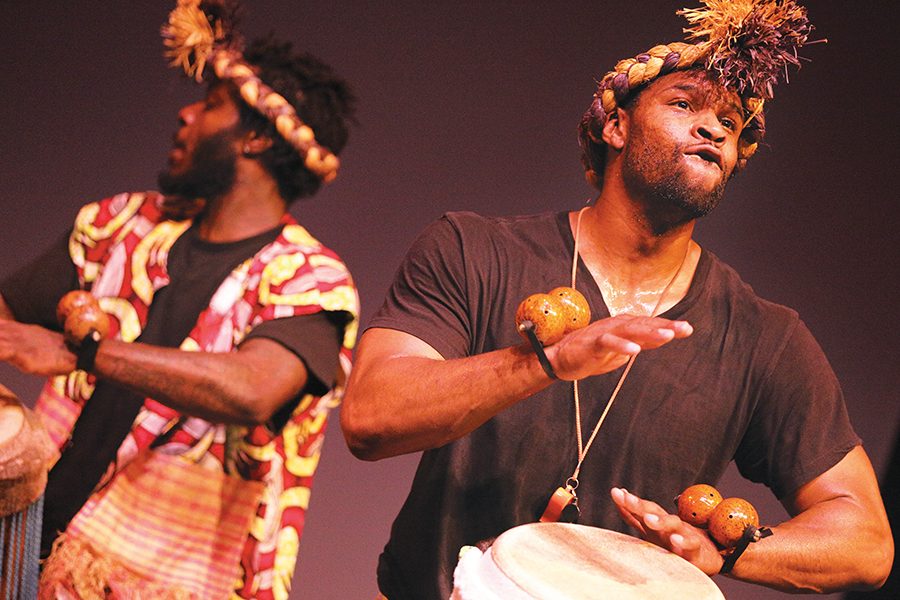Celebration honors African history, intellectual heritage
Event recognizes legacy of Carter G. Woodsen with Knox center performances.
Kiazi Malonga (right) and Fua Dia Congo (left) play drums during the annual African Heritage Month celebration in the Knox Center on Thursday night from 6-8 p.m.
Feb 6, 2018
The black intellect, rhythms and dance, of the annual African Heritage Month Celebration returns to the Knox Center for Performing Arts Thursday from 6 to 8 p.m.
This year’s theme is African traditional legacy, cultural continuity and renaissance.
Professors Manu Ampim and Carolyn Hodge are organizing the event, they agree that African Heritage Month should include more than simply African- American history.
Hodge said, “African Heritage Month as opposed to Black History Month is a political stance we are taking about the culture being of African descent. It is a statement to the community that we are celebrating being of African descent or African.”
Every year students are featured in the event, Hodge said, some will do spoken word performances, one student is putting on a fashion show, sometimes students will speak about their experiences taking the Africana/African-American studies program.
“It’s always a positive thing, but they should advertise it more so more students will go,” biology major Ashley Jones said
The introduction to the celebration is dedicated to the great scholar and historian Carter G. Woodsen who started “Negro History Week” in 1926 which later became Black History Month 50 years later, Ampim said.
Congolese drummers Fua Dia Congo will perform. This group has become a Contra Costa College favorite because it brings incredible energy to the event year after year, Hodge said.
Sistah Iminah will perform a song in the African tradition called the “Goddess Experience.” Ampim is going to share stories and slides from his latest research with isolated peoples from Southern Ethiopia and Sudan.
“These are people who have not changed their traditional dress, they only marry within their own ranks and they don’t care about anybody else. They are doing their own thing. They only focus on their own tribe and their own ceremonies and their own rituals. Their resistance to change allows us to look at the culture the way it was in the past.”
There will also be a live demonstration of traditional African hair wrapping and an explanation of the different meanings of each style, Ampim said.
Hodge said, “Everybody should come. This celebration is not just for black folks. Everybody really enjoys this event. I have been known to give my students assignments to write about the experience.
“Some of the most powerful comments have come from some of my non-black students. They have told me that they did not know about the powerful culture. Some students said that they became more interested in their own history and culture after attending the event.”
In 1916 Woodsen founded the Association for the Study of African American Life and History (ASALH). This organization still facilitates Black History Month events and ceremonies.
The theme that ASALH has selected for 2018 is African- Americans in times of war.
Woodsen choose February for his original celebration because both Frederick Douglass and Abraham Lincoln have birthdays in February, Ampim said.
“Sometimes people say that ‘they gave us the shortest month of the year,’ but there was no ‘they.’ Here was Carter G. Woodsen and it does not matter whether you have a 28-day month or a 31-day month, it’s still not going to be enough.”


